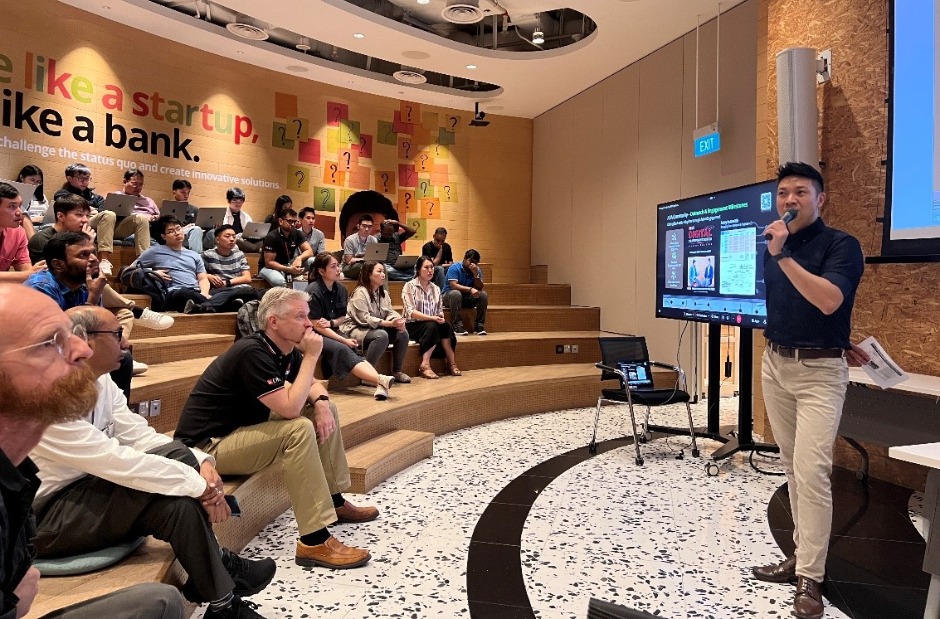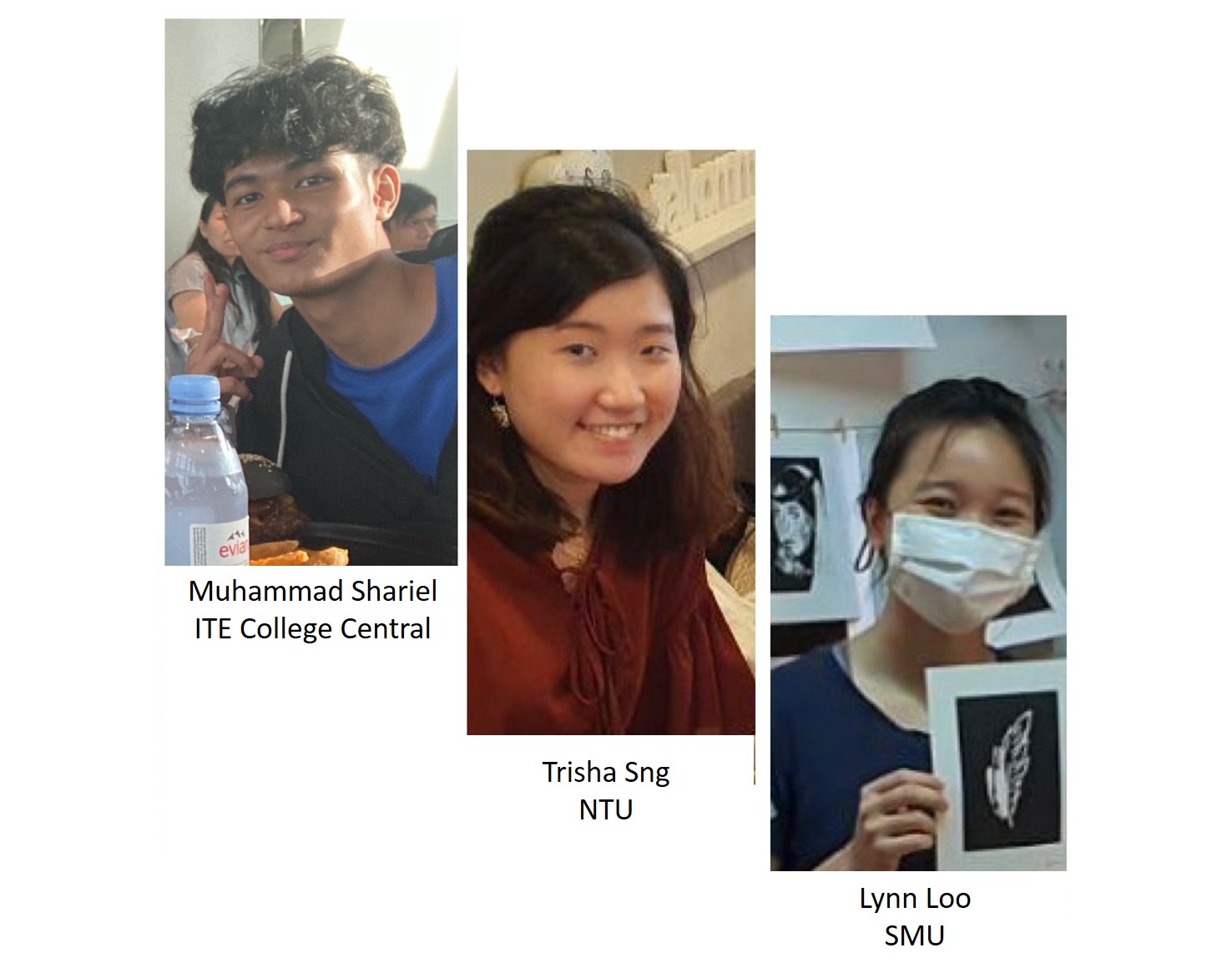On stage, he’s an internationally acclaimed orchestra conductor. Off stage, he’s just a Singaporean making sense of the whirlwind he is in.
At 33, Kahchun Wong is Chief Conductor of the acclaimed Nuremberg Symphony Orchestra in Germany – one of the few Asians leading a cultural institution in Europe. He has also been invited to conduct some of the finest orchestras abroad, including the New York Philharmonic, Czech Philharmonic and Royal Liverpool Philharmonic.
However, life could have turned out very differently for the young man from Jurong West.
Kahchun grew up in a Chinese-speaking family. He first picked up a musical instrument – a cornet – when he joined the brass band in Jurong Primary School. It was through playing in the school bands that Kahchun discovered his love for music.
Kahchun himself has longed believed that if it were not for winning the Gustav Mahler Conducting Competition in 2016 (which changed his career trajectory), he’d still have been pursuing a profession in music.
The Mahler competition is often seen as the Olympics of the conducting world. It’s known as one of the toughest competitions, the way winners are graded and selected, with close to 400 international contestants.
“I would have been equally happy working as a childcare teacher who’s teaching children to sing, or a band instructor in a school. These are all possible careers that could have come my way, and I would respect any of my eventual professions or employers.”
It’s a profound lesson, one of several, as Kahchun sees it.
1. If you have an aspiration, take a chance on it
As a teenager, Kahchun continued to heed his first calling – playing the trumpet in the symphonic band through secondary school and junior college, and taking up the Music Elective Programme.
“Over 12 years I spent in the band, I’ve met band instructors, conductors, and trumpet tutors who are very passionate about what they are doing; who showed me that it’s possible to have a career in music. Beethoven, Mozart and this whole symphony orchestra thing came to me very late, only when I did O-level music.”
One biographically intriguing fact about Kahchun is that his A-level results earned him a place at a top UK university to study physics. However, he opted for a scholarship to study composition at the Yong Siew Toh (YST) Conservatory of Music at the National University of Singapore.
“I come from a simple, working class family. To even think of going overseas without a scholarship, having to go to the bank and being in debt – that was out of the question. It helped that I was sort of clear that music was the one thing I wanted to do, and that my parents saw that I had a real drive in what I wanted to do, so they trusted me.”
“The year that I completed my national service in the SAF* Band was the year I auditioned at YST. When YST offered a scholarship to cover tuition, accommodation and allowance, it was a no-brainer.” (*Singapore Armed Forces)
2. It’s possible to do everything right and still fail
After YST, he broke new ground by becoming the first recipient of the Lee Kuan Yew Scholarship by the Public Service Commission in 2012 in the field of arts and culture. This enabled him to pursue formal conducting studies in Berlin, Germany.
So far, so good. But life was about to throw him some curve balls.
“We need passion to fuel imagination. But we can’t continue our passion without perseverance, and definitely not without failure.”
Kahchun was now in his second year of studying in Berlin, wondering about his future.
“I started applying for jobs, as an assistant conductor or an intern in an orchestra. It must have been 100 to 200 applications, for sure. I didn’t get a single one.
“I submitted entries for over 30 competitions. You’d send a video and your resume to a secretariat, and from, say 200 applicants, they will select 15 to a live audition. That’s the first round. There will be about four rounds to the finals, in which there will be a first, second and third prize. I was always rejected.”
But Kahchun never gave up. “We need passion to fuel imagination. But we can’t continue our passion without perseverance, and definitely not without failure,” he says.
 It was through playing in the school bands that Kahchun discovered his love for music. Photo credit: Angie Kremer
It was through playing in the school bands that Kahchun discovered his love for music. Photo credit: Angie Kremer
He’s smiling now, recalling the day he received the pivotal email from the Gustav Mahler competition in 2016.
“It got to a point that whenever an email came in from a secretariat, I would say, ‘Let me look at it in the morning, and not before I sleep.’ The day I received that email from the secretariat of the Mahler competition, it was before my Chinese New Year reunion dinner.
“I didn’t want to open it because I didn’t want to dampen my mood. After the reunion dinner, it was close to midnight when I went to my computer and told myself, ‘Okay, let’s get this done and over with.’”
This time it happened. He landed an invitation to the Mahler competition in Bamberg, Germany. He went and won – the first Asian to do so – and his career began in earnest.
3. Always see things in perspective
Now, Kahchun is practically everywhere. This year he has conducted the New York Philharmonic, Yomiuri Nippon Symphony, Deutsche Radio Philharmonie, and Royal Liverpool Philharmonic, just to name a few.
These are guest engagements that occupy 15 to 20 weeks of his year. Kahchun devotes another 12 weeks to the Nuremberg Symphony Orchestra, which appointed him chief conductor (the first Asian at the helm) starting in 2018.
“I have a lot of colleagues whom I trust and respect, who are still performing in their 70s, 80s, even a handful in their 90s. It’s really just the beginning for me.”
The remaining time is spent studying music, preparing for rehearsals, and catching up on meetings and administrative work.
Is his busy schedule a sign of a successful musician? Kahchun doesn’t think so.
“I have a lot of colleagues whom I trust and respect, who are still performing in their 70s, 80s, even a handful in their 90s. It’s really just the beginning for me.
“I do sit with my manager to come up with a strategy, to sort of say this is where we are now, and this is how I want to mature as a musician. But aside from that, I try to be as real as possible.
“In a way, I’m very Singaporean. I want to consider every detail, and be more meticulous, more careful. I cannot get too comfortable. We can’t always be happy and successful, and have all the good things come our way. All these have to balance out in the course of life.”
4. Better to get what you desire in the right time
Kahchun tries to come home as often as he can. In October this year, he conducted the Singapore Symphony Orchestra. This is the second time he has worked with them, since winning the Mahler Competition in 2016. On the programme was Rachmaninov’s Second Symphony.
Kahchun didn’t say it, but Rachmaninov’s masterpiece is long – 60 minutes – and requires considerable concentration to perform. It’s a romantic epic with beautiful melodies and a whirlwind of a conclusion.
It’s a piece of music that Kahchun has studied until it is committed to his memory. He puts himself through this process to ensure that the music-making with the orchestra is as seamless as possible.
This effort to master the masterpieces likely contributed to his win at the Mahler competition, which featured Mahler’s Third Symphony, one of the longest symphonies ever written, lasting over 90 minutes.
On winning the competition, Kahchun says, “I believe there is a right time for everything. I made sure I was ready for it when it came.“
5. Inspiring others can inspire ourselves
If gratitude is what Kahchun feels, then volunteering is how he shows it.
“Another reason I’m back in Singapore regularly is because I volunteer at a non-profit centre in Ang Mo Kio, Child at Street 11. I meet around 60 kids, generally between 4 and 6 years old. They come from diverse backgrounds and households, some with special needs. If I can stop over in Singapore for a few days, that’s where I’ll be, working with these kids, singing and composing music.”
His ambition today is simple: make music as relevant to as many people as possible.
“Art, music and culture should be readily available to people from a young age. Sure, music as a career is really tough. But people can take it on as a hobby, a way of emotional catharsis. Music is useful in shaping us as people with values of empathy, listening and mutual understanding. At the same time, it develops life skills, discipline and teamwork.”
“What I try to do in Ang Mo Kio, in the region, is to find opportunities to make music relevant to people regardless of who they are. For me, having access to music is a right, not a privilege.”



.jpg)


.jpg)